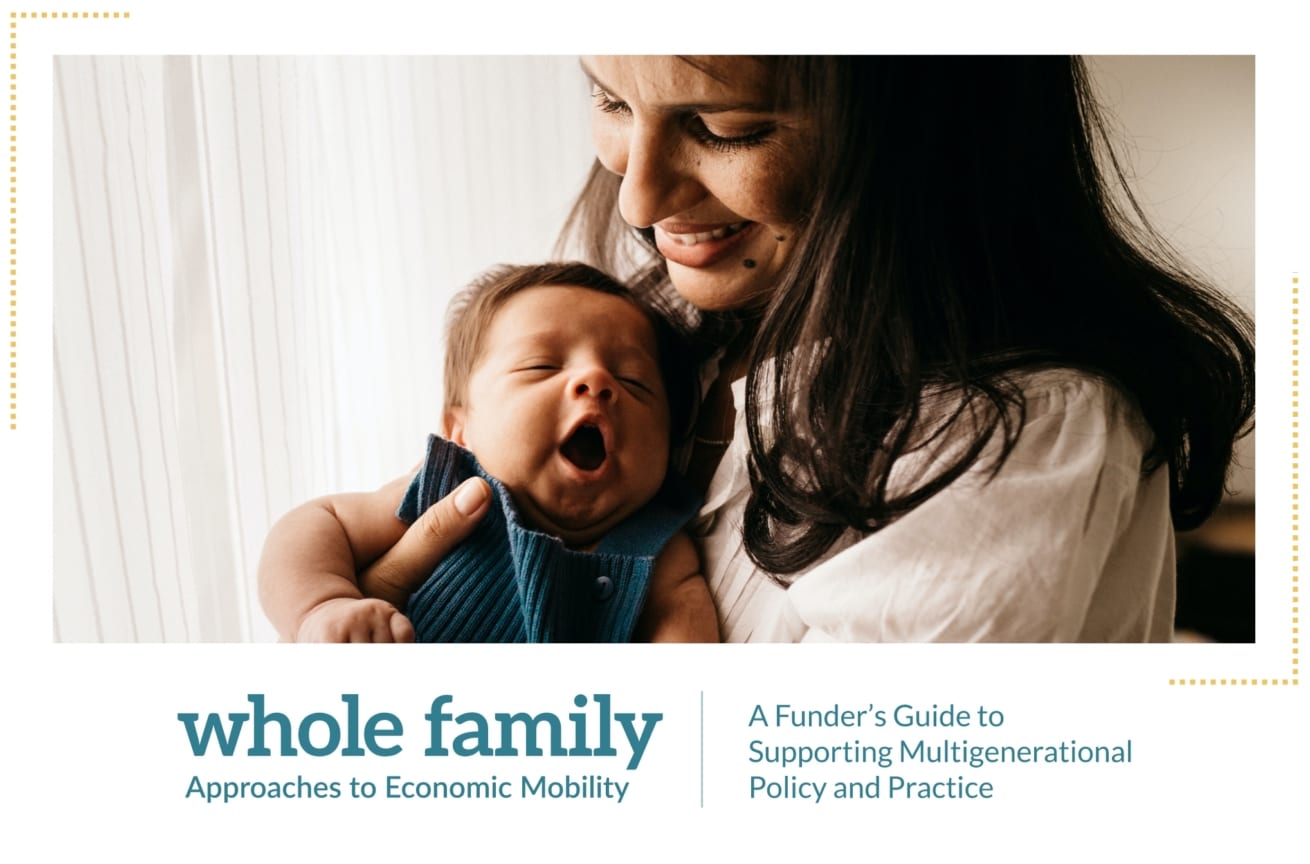
Whole Family Approaches to Economic Mobility: A Funder’s Guide to Supporting Multigenerational Policy and Practice
Building from the learnings of the Whole Family Approaches to Economic Mobility Cohort, WFN has led an initiative in partnership with Ascend at the Aspen Institute and funding from the W.K. Kellogg Foundation, to create a guide for funders investing in families and communities with a whole family focus.
Funders can play a critical role in supporting families through adopting some or all the elements of a 2Gen approach in their investment strategy. The new guide helps funders, including those who want to improve gender and racial equity, identify how their foundation can directly engage grantees, parents, and policy makers resulting in more responsive and relevant grantmaking.
This Whole Family Guide provides
- Tools for foundations to identify how whole family investing can amplify their outcomes
- Templates and checklists to assess foundation fit with whole family work
- Information and resources to support strategy development, operationalization, and evaluations for whole family work
- Strategies for engaging parents, grantees, and policymakers in whole family approaches
About Ascend at the Aspen Institute
Since 2010, Ascend at the Aspen Institute has been a national driver of whole-family funding methods, also known as two-generation (2Gen) approaches, which build family well-being by intentionally and simultaneously providing opportunities for and meeting the needs of children and the adults in their lives. From its inception, a gender and racial equity lens has been central to Ascend’s work. Over the last five years, these whole-family approaches have been embraced and advanced by women’s foundations and funds leading systemic change through policy solutions in partnership with state policymakers.
Read more about this partnership and the history and goals of the project from the leadership of Women’s Funding Network and Ascend at the Aspen Institute.
Whole Family Approaches to Economic Mobility Cohort
This two year program supports the efforts of women’s foundations across four states to move low-income women and their families out of poverty. Each works in their state to support programs for caregivers and children and advocates for more effective policies. They collaborate regularly as a learning community to share lessons learned and discuss strategies. These findings will be published in a Whole Family Funding Guide in October, 2020.
Examples of shifts in policy are listed below.
The Women’s Fund of Greater Birmingham – led an educational effort and legislative campaign resulting in the passage of Alabama’s first Equal Pay Act. They secured a $300,000 appropriation in the state education budget to connect women with a post-secondary education and the wraparound supports necessary for success, such as child care and transportation.
The Women’s Foundation of Southern Arizona – building upon years of relationship-building with legislators as a non- partisan resource for issues affecting women and their families, drafted Arizona bill SB1173 to provide child care assistance to families transitioning off of cash assistance due to increased earnings. While the legislation was unsuccessful in 2019, it will be re-introduced in 2020.
Texas Women’s Foundation – increased the baseline childcare subsidy rates to 30% of the childcare market survey and 75% for quality rated programs. With partners, they are supporting a community outreach media and marketing effort to attract new childcare providers to the Texas Rising Star Program.
Women’s Foundation of Colorado – leads a coalition advocating for legislation that supports improvements to childcare, early childhood education, pathways for low income women to become early childhood educators and professionals with a living wage, and paid family and medical leave. Over a dozen pieces of such legislation were passed.